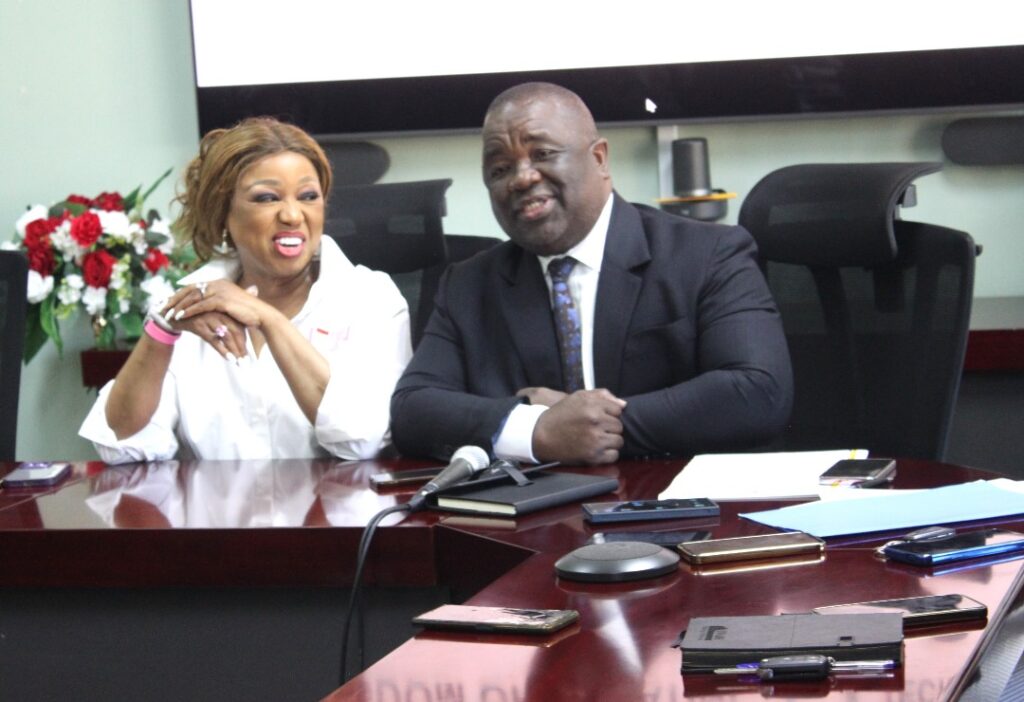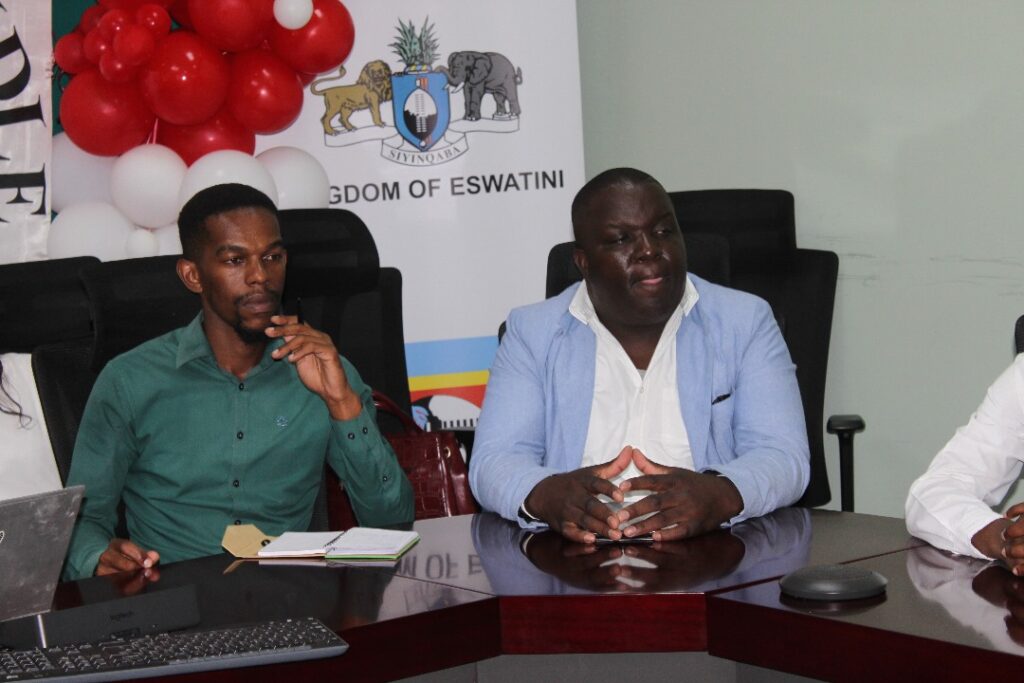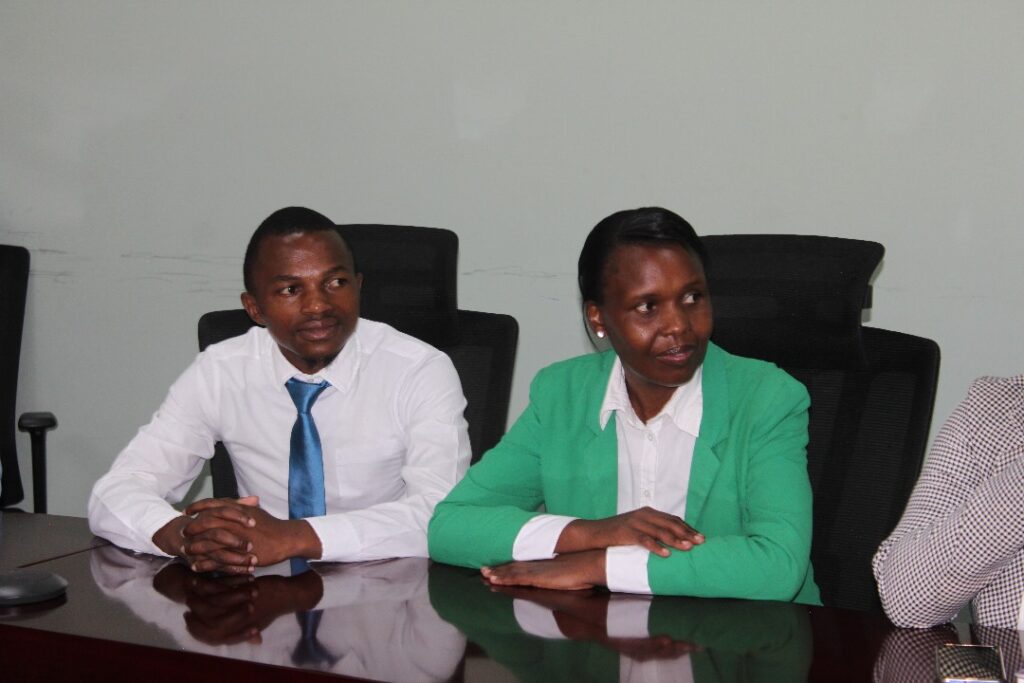
By Sizwe Dlamini
The Ministry of Information, Communications, and Technology (ICT) has secured 50 globally recognized scholarships, funded by the United Arab Emirates (UAE), for local teachers.
This initiative is one of the key outcomes of the Memorandum of Understanding (MoU) signed between Eswatini and the UAE in September 2024.
At a press conference held at the Ministry of ICT’s conference room in Mbabane, the Minister of ICT, Savannah Maziya, unveiled five of the 50 teachers selected to participate in the UAE-sponsored Government Exchange Program Digital School Initiative.
The program aims to empower educators in Eswatini with essential digital skills and innovative teaching tools, ultimately enhancing the quality of education in the Kingdom.
Maziya explained that the collaboration between the Ministry of ICT and the Ministry of Education and Training focuses on equipping teachers with advanced training in digital methodologies.
“This globally recognized program will provide teachers with the tools they need to integrate e-learning platforms, artificial intelligence tools, and digital content creation into their classrooms. The training will be delivered remotely from December 1, 2024, to January 31, 2025, and is fully funded by the UAE Government Experience Exchange Office,” she said.
Upon completion, participants will receive accredited certificates from Arizona State University, which will enhance their professional qualifications and enable them to introduce cutting-edge digital teaching approaches into Eswatini’s education system.
Minister Maziya emphasized the transformative potential of this initiative saying, “This program is part of our broader commitment to improving the professional development of Eswatini’s educators, especially in an age where digital literacy is crucial for delivering quality education,” she stated.
The selection process was designed with inclusivity in mind, particularly focusing on teachers from rural areas where access to digital resources is often limited.

Approximately 75% of the selected teachers come from rural schools, reinforcing the program’s goal of bridging the digital divide between urban and rural communities. Additionally, both disabled and non-disabled educators were chosen to ensure diversity and younger teachers were selected to ensure long-term benefits from the investment.
This initiative also aligns with Eswatini’s broader “Government in Your Hand” project, which seeks to enhance digital literacy and build capacity within the government workforce.
“By equipping our educators with the latest digital tools and strategies, we are not only improving the quality of education but also fostering a culture of innovation and adaptability that will benefit Eswatini for years to come,” Maziya added.
Looking ahead, the Minister expressed confidence that the initiative will continue to grow.
“This is just the beginning,” she said. “We hope to increase the number of teachers participating in the program in the coming years, ensuring that teachers from all regions have access to the same professional development opportunities.”
The selected teachers are expected to approach the training with a deep sense of responsibility and purpose.
“Teachers, we are counting on you to make us proud,” Maziya urged. “This is an investment in your careers and the future of education in Eswatini. Your success in this program will have a lasting impact on the Kingdom’s educational system.”
The initiative is part of a broader government effort to ensure that Eswatini’s educators are well-equipped to succeed in a rapidly evolving digital landscape, fostering an environment where both students and teachers can thrive.

Also speaking at the press conference, Minister of Education and Training, Owen Nxumalo, highlighted the strong support from His Majesty King Mswati III for education in Eswatini.
“The King is very passionate about education and will be pleased to see that our teachers are receiving the tools they need to succeed in the modern world,” Minister Nxumalo said, acknowledging concerns raised by teachers regarding the implementation of the Competency-Based Education (CBE) program, particularly due to a lack of digital training.
“We are grateful to Minister Maziya for securing this opportunity, which will help our teachers gain the skills they need to succeed,” he added.
